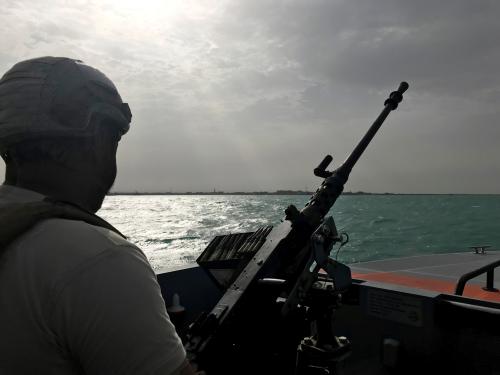As the Middle East goes, much of the world’s attention is understandably focused on the chaos in Syria. But the United States is much more directly involved—in a variety of capacities—with Iraq next door. How is the military campaign against the Islamic State going in Iraq? What explains the political paralysis in Baghdad, as well as massive recent demonstrations? Is there hope for the economy? And on all of these fronts, is the Kurdish region doing any better?
Brookings Senior Fellow Kenneth M. Pollack traveled to Iraq in March—with Michael Knights of the Washington Institute for Near East Policy, on a trip sponsored in part by the Atlantic Council’s Task Force on the Future of Iraq—and reported back on the situation on the ground and in the halls of the Iraqi government. Some key findings included:
- The U.S.-led coalition’s military campaign to defeat the Islamic State is going better than many realize, and although the Iraqi high command remains “very problematic,” in Ken’s words, there are signs of progress;
- The accompanying civilian effort “is not keeping pace,” and there are no clear plans to create and implement “a political context where tactical military victories can be translated into enduring, political achievements;”
- While Prime Minister Haider al-Abadi has made smart moves in the military sphere, he has mishandled politics in important arenas and failed to take concrete, visible steps towards reform (reconciliation among Sunnis and Shiites “remains moribund,” meanwhile);
- Persistent low oil prices have exacerbated Iraq’s financial crisis, but foreign aid prospects for 2016 have “mitigated the sense of panic in Baghdad;”
- The Kurdistan Regional Government has also achieved important military gains, but is mired in its own form of political paralysis—manifest in splits within and between between the Kurdistan Democratic Party (KDP), the Patriotic Union of Kurdistan (PUK), and the Gorran (or Movement for Change);
- More so than in Baghdad, the financial crisis is prompting real economic reforms, but the oil industry is still “facing grim prospects.”
The full three-part series is available on our sister blog, Markaz.


Commentary
Understanding Iraq’s anti-ISIS efforts, political deadlock, and economy
May 19, 2016